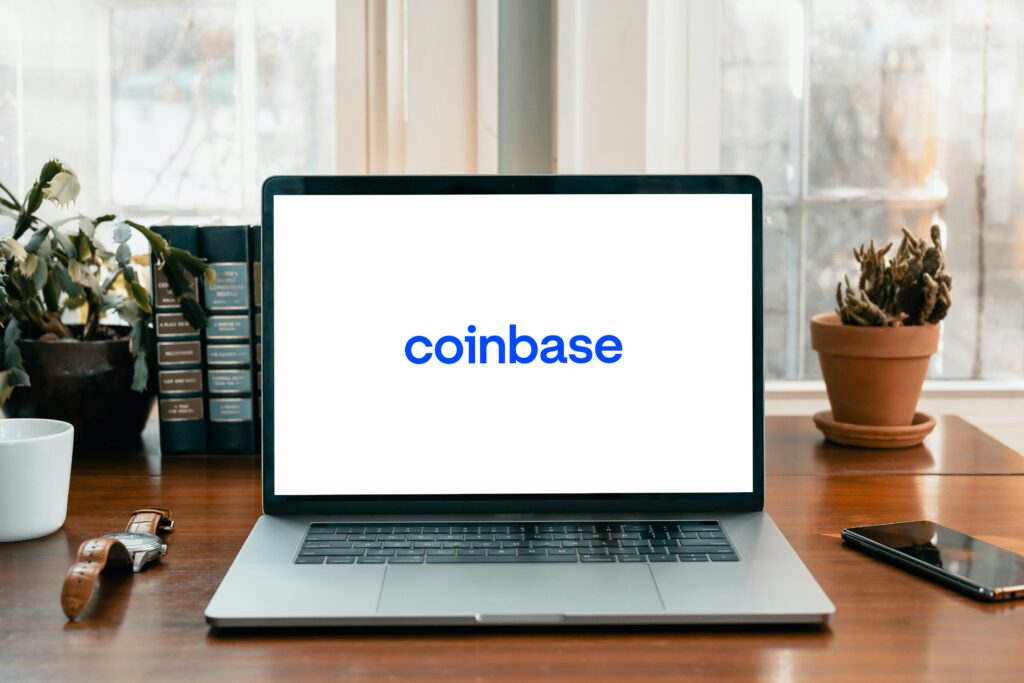5 Digital Asset Custody Solutions For Optimal Storage
Digital assets have become an essential part of the modern financial landscape, and ensuring their security is paramount. Choosing correct digital asset custody solutions is crucial for individuals and entities looking to safeguard their investments. Here, we’ll delve into the top 5 digital asset custody solutions that offer secure storage options for your valuable assets.
When it comes to safeguarding your digital assets, opting for a reliable custody solution is key in protecting your investments from potential threats such as hacks, theft, or unauthorized access. Digital asset custody solutions provide secure storage services for various cryptocurrencies and digital tokens, offering peace of mind to investors and institutions alike.
Gemini Custody
Gemini Custody is a popular choice among investors seeking a robust and secure storage solution for their digital assets. With Gemini’s offline cold storage technology and multi-signature protection, users can trust that their assets are safeguarded against cyber threats. Gemini’s custody solution is regulated and compliant, providing an added layer of security and trust for investors looking to protect their assets.
Advantages:
Security: Custody services by reputable platforms like Gemini typically employ robust security measures, including cold storage solutions, multi-signature wallets, and encryption, to safeguard digital assets from theft or hacking.
Regulatory Compliance: Gemini has been known for its commitment to regulatory compliance. Using a custodial service with a strong compliance framework may be crucial for institutional investors or businesses adhering to regulatory standards.
Insurance Coverage: Some custodial services, including Gemini, may provide insurance coverage for the digital assets they hold. This can be a reassuring feature in the event of unexpected events like hacking or other security breaches.
Institutional-Grade Service: Gemini’s custody service is designed to meet the needs of institutional clients. This includes features such as secure storage, reporting, and integration capabilities that cater to larger investors.
User Interface and Experience: Gemini is known for its user-friendly interface, which can be an advantage for both individual and institutional users managing their digital assets.
Cons:
Centralized Nature: Most digital asset custodial solutions are centralized by nature, meaning users must trust the custodian to secure their assets properly. This runs counter to the decentralized ethos of many cryptocurrencies.
Costs: While fees can vary, using a custodial service typically involves costs. These may include custody fees, transaction fees, and other charges, which can impact the overall return on investment.
Limited Control: When using a custodial service, users relinquish some control over their private keys and, consequently, their digital assets. This is a trade-off for the enhanced security provided by the custodian.
Dependency on Service Provider: Users relying on a custodial service are dependent on the service provider’s operational stability. Downtime or technical issues on the custodian’s side could affect the accessibility of the assets.
Regulatory Risks: Despite efforts to comply with regulations, changes in the regulatory landscape could impact the custodial service and its users. This is a risk associated with the evolving nature of cryptocurrency regulations.
Coinbase Custody

Coinbase Custody is another reputable name in the world of digital asset custody solutions. Backed by Coinbase, a leading cryptocurrency exchange, Coinbase Custody offers institutional-grade security features such as offline storage, insurance coverage, and rigorous auditing processes. Institutions and high-net-worth individuals often choose Coinbase Custody for its reliable and secure storage options.
Advantages:
Security Measures: Coinbase employs robust security measures, including cold storage solutions, multi-signature wallets, and encryption, to safeguard digital assets from unauthorized access or hacking.
Insurance Coverage: Coinbase provides insurance coverage for digital assets held in their custody. This can be a significant advantage in the event of security breaches, hacking, or other unforeseen circumstances.
User-Friendly Interface: Coinbase is known for its user-friendly interface, making it accessible for both individual and institutional users to manage their digital assets with ease.
Regulatory Compliance: Coinbase has demonstrated a commitment to regulatory compliance, which can be crucial for institutional investors and businesses adhering to legal and regulatory standards.
Range of Supported Assets: Coinbase supports a wide range of cryptocurrencies and digital assets, offering digital asset custody solutions for various digital assets beyond just Bitcoin and Ethereum.
Cons:
Centralization: Custodial services inherently introduce a level of centralization, as users need to trust the custodian to secure their assets. This contrasts with the decentralized ethos of many cryptocurrencies.
Dependency on Service Provider: Users relying on Coinbase’s custody service are dependent on the operational stability of the service provider. Any downtime, technical issues, or changes in the platform’s policies could impact accessibility to assets.
Costs: Custodial services typically come with associated fees, which can include custody fees, transaction fees, and other charges. These costs can affect the overall return on investment for users.
Limited Control Over Private Keys: When using a custodial service like Coinbase, users surrender control over their private keys. This may be a trade-off for the enhanced security provided by the custodian, but it goes against the philosophy of maintaining full control over one’s assets.
Regulatory Risks: Changes in the regulatory landscape could impact Coinbase’s custody service and its users. The evolving nature of cryptocurrency regulations introduces a level of uncertainty for users relying on centralized services.
Ledger Vault
Ledger Vault is a secure and flexible digital asset custody solutions that caters to institutional clients and asset managers. With its advanced security features, including multi-authorization governance and hardware security modules, Ledger Vault ensures the safe storage of digital assets while allowing for seamless asset management. Institutions looking for a customizable and secure custody solution often turn to Ledger Vault for their storage needs. The Digital Asset Sisters teach using the Ledger as one of their digital asset custody solutions; this can be found in their CryptoStart Program.
Advantages:
Security Features: Ledger Vault emphasizes security, leveraging the expertise gained from its hardware wallet solutions. This may include advanced cryptographic measures, secure enclaves, and hardware security modules to protect digital assets. This solution is a decentralized, which most digital asset custody solutions are centralized.
Cold Storage Solutions: Like many reputable digital asset custodial solutions, Ledger Vault may utilize cold storage solutions, keeping a significant portion of assets offline to reduce the risk of hacking or unauthorized access.
Institutional-Grade Service: Ledger Vault is designed to cater to institutional clients, offering features such as secure storage, reporting tools, and integration capabilities tailored for larger investors and businesses.
Multi-Signature Wallets: Multi-signature wallets add an extra layer of security, requiring multiple private keys to authorize transactions. Ledger Vault may incorporate this feature to enhance the security of digital assets custody solutions.
User Control Over Private Keys: Ledger Vault is designed to allow users to maintain control over their private keys. This provides users with the advantage of having direct ownership and control of their digital assets and digital asset custody solutions.

Cons:
Costs: Custodial services typically involve costs, and Ledger Vault is no exception. Users should be aware of the fees associated with the custody service, as well as any transaction fees that may apply.
Limited Asset Support: While Ledger is well-known for its hardware wallets supporting a wide range of cryptocurrencies, Ledger Vault’s custody service may have limitations on the number and types of digital assets supported which makes many digital asset custody solutions limited to Bitcoin of Ethereum only. Though Ledger has greatly advanced in the past years and are now taking many alt. coins as well.
Dependency on Service Provider: Users relying on Ledger Vault are dependent on the operational stability of the service provider. Any disruptions, technical issues, or changes in policies could impact accessibility to assets.
Regulatory Compliance: Like any custodial service, Ledger Vault may be subject to regulatory requirements. Users should ensure that the service complies with relevant regulations, which is particularly important for institutional clients and businesses.
Learning Curve: While Ledger Vault is designed to be user-friendly, users who are new to digital asset custody solutions or institutional clients may face a learning curve in understanding and implementing the service’s features.
BitGo
BitGo is a trusted name in the digital asset custody solutions space, offering multi-signature wallets and institutional-grade security features for investors and businesses. With BitGo’s cold storage solutions and advanced encryption protocols, users can have peace of mind knowing their assets are protected from potential threats. BitGo’s user-friendly interface and industry-leading security practices make it a top choice for those prioritizing security in their digital asset custody solutions.
Advantages:
Security Measures: BitGo is known for implementing robust security measures, including multi-signature wallets, cold storage solutions, and advanced cryptographic techniques. These features enhance the security of digital assets.
Insurance Coverage: BitGo has offered insurance coverage for digital assets held in its custody. This can provide an additional layer of protection for users in the event of security breaches, hacking, or other unforeseen circumstances.
Multi-Signature Wallets: BitGo employs multi-signature wallets, requiring multiple private keys to authorize transactions. This enhances the security of funds by reducing the risk associated with a single point of failure.
Institutional-Grade Service: BitGo is designed to cater to institutional clients, providing features such as secure storage, reporting tools, and integration capabilities tailored for larger investors and businesses.
Compliance: BitGo has emphasized regulatory compliance, which is crucial for institutional clients and businesses operating in the cryptocurrency space. Adhering to regulatory standards helps build trust with users.
Cons:
Costs: Using a custodial service like BitGo typically involves costs, including custody fees and potentially transaction fees. Users should carefully review the fee structure to understand the financial implications.
Dependency on Service Provider: Users relying on BitGo’s custody service are dependent on the operational stability of the service provider. Any disruptions, technical issues, or changes in policies could impact accessibility to assets.
Limited Control Over Private Keys: While BitGo enhances security through its custody solutions, users must relinquish some control over their private keys. This trade-off is made in exchange for the added security provided by the custodian.
Learning Curve: Institutional clients and businesses new to digital asset custody may experience a learning curve when adopting BitGo’s services. Understanding and implementing the features may take time and resources.
Limited Asset Support: BitGo may have limitations on the number and types of digital assets supported. Users should verify that the custody service accommodates the specific cryptocurrencies they intend to store.
Anchorage
Anchorage is a digital asset custodian that focuses on providing secure storage solutions for institutional clients and enterprises. Anchorage’s innovative security approach, utilizing biometrics and hardware security modules, sets it apart as a leading custodial service provider. By prioritizing both security and usability, Anchorage offers a comprehensive custody solution for institutions looking to safeguard their digital assets effectively.
Pros:
Security Measures: Anchorage is known for its robust security measures, including the use of secure hardware, biometric authentication, and the implementation of a proprietary security architecture. This helps enhance the overall security of digital assets.
Partnerships and Integrations: Anchorage has established partnerships and integrations with various players in the cryptocurrency and financial industries. This can provide users with a seamless experience and access to additional services.
Insurance Coverage: Anchorage may offer insurance coverage for digital assets held in its custody. Insurance can be crucial in providing additional protection against various risks, such as hacking or other unforeseen events.
Institutional Focus: Anchorage primarily caters to institutional clients, providing services tailored to the needs of larger investors and businesses. This can include secure storage, reporting tools, and other features required by institutional users.
Regulatory Compliance: Anchorage places an emphasis on regulatory compliance, which is particularly important for institutional clients and businesses navigating the evolving landscape of cryptocurrency regulations.
Cons:
Costs: Using a custodial service like Anchorage typically involves costs, including custody fees and potentially transaction fees. Users should carefully review the fee structure to understand the financial implications.
Dependency on Service Provider: Users relying on Anchorage’s custody service are dependent on the operational stability of the service provider. Any disruptions, technical issues, or changes in policies could impact accessibility to assets.
Learning Curve: Users, especially those new to digital asset custody solutions, may experience a learning curve when adopting Anchorage’s services. Understanding and implementing the features may take time and resources.
Limited Control Over Private Keys: While Anchorage enhances security through its custody solutions, users must relinquish some control over their private keys. This trade-off is made in exchange for the added security provided by the custodian.
Limited Asset Support: Anchorage may have limitations on the number and types of digital assets supported. Users should verify that the custody service accommodates the specific cryptocurrencies they intend to store.

Choosing A Digital Asset Custody Solutions
Investing in digital assets comes with the responsibility of safeguarding those assets against potential risks and threats. Digital asset custody solutions play a vital role in ensuring the security and protection of your investments. By choosing a trusted custody provider like Gemini Custody, Coinbase Custody, Ledger Vault, BitGo, or Anchorage, investors can rest assured that their digital assets are in safe hands, protected by industry-leading security measures. When it comes to digital asset custody solutions, opting for a reliable and trustworthy custody solution is key to long-term success in the ever-evolving landscape of digital finance.
When choosing or researching digital asset custody solutions, you have to think about your vision, your intent, and your unique situation. Not every digital asset custody solutions are one size fits all, they are usually tailored to a specific customer needs. Identify your needs and then choose the digital asset custody solution that works best for you.
Remember, **Digital Asset Custody Solutions** are not just about storage; they are about peace of mind. Make sure to conduct thorough research and choose a custody solution that aligns with your security needs and investment goals.

